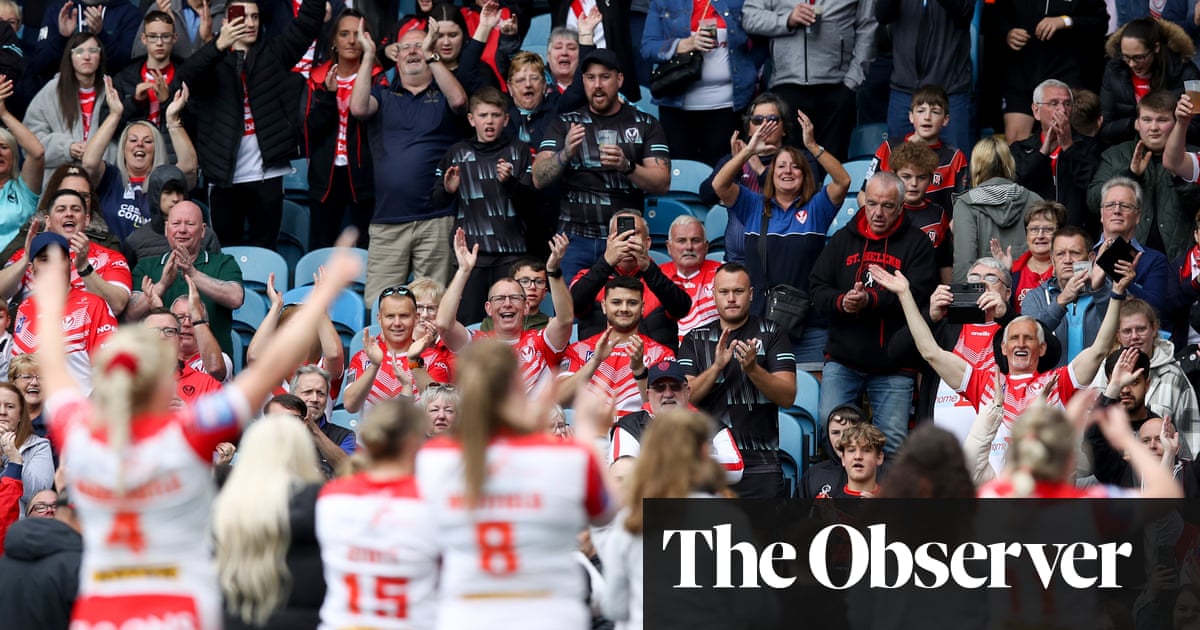For casual observers of the Rugby League Women's Super League, the conversation constantly revolves around one topic: the journey to the day when the sport can emulate football and go professional.
The truth is, however, that things are very different for many of the sport's stars as the 2024 season begins this weekend.
Naturally, every WSL player dreams of quitting their day job and becoming a professional. That day is still a long way off, although the women's off-season continues to expand with news that more clubs will be paying match fees to players, with St Helens being the latest example. This brings the total number of WSL clubs paying some or all of their players to five: two years ago the number was zero.
But the journey to women's rugby league is about much more than the pay. Some are determined to leave a much greater legacy for those who follow in their footsteps in the years to come. “In three or four years the number of women went from zero to 100,” says Jodie Cunningham, 32, St Helens captain. “I am so passionate about being involved in the women's game. I'm really happy to have a voice in it.”
St Helens are one of three heavyweights in the WSL, alongside Leeds and York, and are favorites for the Challenge Cup, which they won at Wembley last year. Saints' decision to wait until now to introduce match fees is indeed surprising, considering how long it took their two big rivals to make the move, but it is a well-thought-out approach to building the women's program from the bottom up.
Mike Rush, chief executive of St Helens, says: “The game has to develop at the bottom of the pyramid, otherwise how can we improve the overall standard? There is an argument that there are three great teams and the rest are far behind. The RFL now needs to grow the sport commercially because every club is losing money on the men's game and we can't just double that on the women's game. They are still a long way from being full-time professionals, that is the reality, but we are trying to give them work experience elsewhere.”
With all the talk about pay, it's easy to forget how far the women's game has come. York's Kelsey Gentles was among those who were there at the start of the WSL in 2017 with Castleford, when top clubs played on park pitches in front of almost no one. This weekend, the 25-year-old will return after an 18-month absence from the pitch due to her pregnancy and the birth of her daughter Maja. For Gentles, being able to play again is reward enough, even without money.
“I went to a few games while pregnant and some old rugby league fans said, 'You've ruined your career and you should retire,'” she said this week. “I planned to continue training during my pregnancy, but I was diagnosed with a hip problem and stopped all physical activity. When you step away from gaming, you appreciate it so much more and I really missed it.
The challenge facing the sport is twofold: finding new sources of revenue that bring everyone closer to the reality of their wage dreams, and also overcoming the pack chasing to close the gap to Leeds, York and St Helens. That is the aim for Huddersfield, which is one of several clubs to sign professional contracts this season.
after promotion in the newsletter
Their captain, Bethan Oates, was a British Muay Thai champion – sometimes called Thai boxing – before switching to rugby league at the age of 19. She combines the game with a full-time job at a leisure center and says she is more motivated to build a legacy in the West Yorkshire town than to chase a paycheck.
“I was never interested in playing anywhere else,” says the 28-year-old. “I started here, I've gone down different paths and I've seen how much it's changed, and I want to finish here. Being able to watch young girls develop is a great motivation for me. It's crazy how far me and this sport have come in the last five or six years. “
Women's rugby league has come a long way, Cunningham says. There's still a long way to go before professionalism becomes a reality, but sometimes it's wise to take a step back and appreciate the journey to this point.
